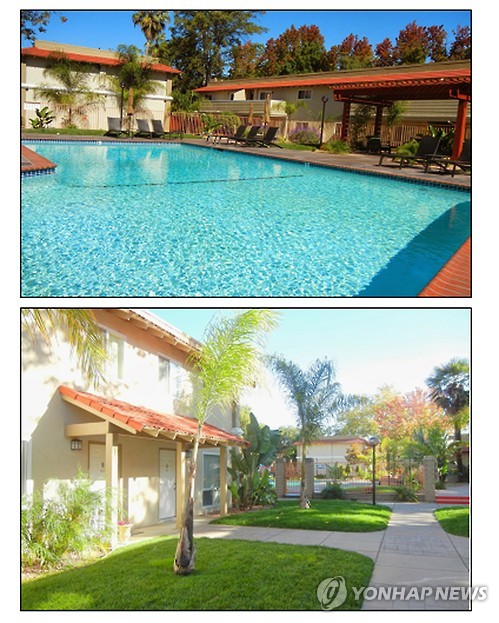- California Assembly OKs highest minimum wage in nation
- S. Korea unveils first graphic cigarette warnings
- US joins with South Korea, Japan in bid to deter North Korea
- LPGA golfer Chun In-gee finally back in action
- S. Korea won’t be top seed in final World Cup qualification round
- US men’s soccer misses 2nd straight Olympics
- US back on track in qualifying with 4-0 win over Guatemala
- High-intensity workout injuries spawn cottage industry
- CDC expands range of Zika mosquitoes into parts of Northeast
- Who knew? ‘The Walking Dead’ is helping families connect
Korean investors’ rising appetite for overseas properties draws mixed reactions
SEOUL, Sept. 13 (Yonhap) — South Korean institutions and individual investors have increased their investments in overseas real estate assets in recent years as part of their efforts to seek stable investment gains amid declining profits from traditional equities and bonds.
The move has raised expectations that overseas real estate can be a source of new alternative investments for local institutions at a time when they have been struggling to generate profit amid low growth and rates at home.
Last week, South Korea’s central bank held its policy rate at an all-time low of 1.25 percent in a move to strengthen growth for Asia’s fourth-largest economy.
Overseas property-based funds managed by South Korean institutions came to 11.27 trillion won (US$110 billion) as of the end of last year, up from 4.93 trillion won in 2013, according to the Korea Financial Investment Association.
The funds also increased to 16.84 trillion won as of the end of August.
Mirae Asset Global Investments Co. has signed a deal to acquire four State Farm office buildings in Texas from a U.S. real estate company at 950 billion won in its latest investment. Additionally, the company has invested about 5.2 trillion won in other overseas buildings and hotels since 2006 to secure a variety of growth drivers.
The four buildings in Texas have been rented out to State Farm Mutual Automobile Insurance Company, the largest auto insurer in the U.S., on a 21-year lease.
The long-term lease appears to be a stable deal even with a possible rate hike in the U.S. and said its annual return of 6 percent is high, a person familiar with the deal said.
“This could be the last chance to acquire good assets as Chinese money is flooding global asset markets,” he said.
He also said the decision to invest in the U.S. appears to have been affected by the belief that U.S. assets could be more stable than assets in South Korea should the global financial crisis happen.
Aside from four State Farm office buildings in Texas, Mirae Asset Global Investments has invested about 5.2 trillion won in other overseas buildings and hotels since 2006 to secure a variety of growth drivers.

Properties in the United States bought by South Korean individuals (Photo courtesy of National Tax Service)
South Korea’s national pension fund, the world’s third largest with more than 520 trillion won in assets, also spent a total of 33.9 trillion won on overseas alternative investments from 2011 to March this year, with property accounting for 16.4 trillion won, or 48.4 percent, of the total.
Some small brokerage firms are also taking a close look at real estate markets in foreign countries to generate profits.
“I think that increasing investments in alternative assets such as overseas real estate or airplanes are a step in the right direction as it is difficult to generate profits in traditional investment markets such as stocks and bonds,” a top official of a small brokerage firm said.
Still, some critics voiced concerns over investments in overseas real estate, noting institutions may have bought properties at higher prices amid speculation that the U.S. could raise interest rates.

The National Pension Service invested in Sony Center, a Berlin-based building complex that houses Sony’s German headquarters. (Courtesy of NPS)
Last month, Federal Reserve Chair Janet Yellen said the case for an increase in the federal funds rate has strengthened in recent months, citing continued solid performance of the labor market and outlook for economic activity and inflation. Still, she did not provide any specific time frame for the possible rate hike.
A rate hike could lower returns on alternative assets like real estate, experts said.
Kim Hun-gil, an analyst at Hana Financial Investment Co., said that investments in U.S. real estate could be dangerous, citing economic data in the U.S.
The volume of commercial real estate has been on the decline from March to June.
He also said returns on U.S. commercial real estate fell to 6.31 percent, compared with 6.28 percent during the global financial crisis in 2007.













